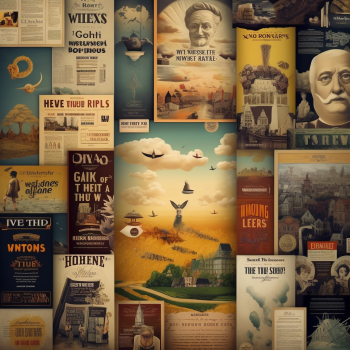A_History_of_Scotland_Series_2《苏格兰史话》

简述
史地类纪录片,BBC 道2010 年出品,是 BBC A History of Scotland 系列之一。
封面

影片信息
官方网站
http://www.bbc.co.uk/programmes/b00nz3b7
影片原始规格:
- 中文片名 :苏格兰史话
- 中文系列名:
- 英文片名 :A History of Scotland Series 2
- 英文系列名:BBC A History of Scotland
- 电视台 :BBC
- 地区 :英国
- 语言 :英语
- 时长 :约 59 分钟/集
- 版本 :TV
- 发行时间 :2010
影片内容介绍
剧情简介
苏格兰历史大约开始于一万多年前。考古学研究在现在的苏格兰地域内发现了大量石器时代、青铜时代与铁器时代的证据与信息,但是并没有成文的历史资料。对于苏格兰的正式记载则要等到公元一世纪罗马帝国对于大不列颠岛的侵占。
公元9至11世纪前后,一个相对独立完整的苏格兰王国逐渐成形。在之后的数百年间,因为领土、宗教、政治等不同原因,苏格兰与南面的英格兰、西面的爱尔兰、欧洲大陆的法国、挪威等王国和势力之间有过错综复杂的联盟、婚姻和战争关系。公元十七和十八世纪,苏格兰王国最终与英格兰王国合并,形成了现在联合王国的主干。
历史上的苏格兰,有其独特的文化传统,强烈的民族意识,涌现出一大批各界的杰出人物,对欧洲甚至世界近代史发展有过相当重要的影响。
分集介绍
God’s Chosen People
In 1633, Charles I Stuart, a Catholic at heart, turned his belated royal entry in Scotland into a disaster by imposing a more ’lavish’ Anglican style on its native, staunchly austere protestant Presbyterian ‘kirk’ (church). It’s the prelude to a series of bitter, at times bloody conflicts. Key events include the 1638 the National Covenant, the 1640 war, the 1642 Scottish part in the English civil war. Similar religious strife occurred in the reigns of Charles II, James II, open Catholics in continental exile, and the protestant challenger, the Dutch usurper William of Orange, consort of Queen Mary.
Let’s Pretend
Fleeing the usurper William of Orange, toppled king James II Stuart resided in Louis XIV’s grand spare palace St.Germain-des-Prés, with a Jacobite court in exile. William wanted war on Catholic France, so he granted parliament a liberal regime. Scotland was ignored, in famine because of the war and denied the English colonial trade until William Patterson founded the Royal Bank - and trading Company of Scotland, which made a quarter of the country’s sparse cash vaporize in the Panamanian Darien colony. Effectively paying off the impoverished nobles and promising religious and other freedoms enables queen Anne, succeeded to William after a fatal fall, to ‘bribe’ the Union treaty in the early 1500s.
Louis’s fleet would fail to bring the Stuarts in exile on planned invasions of Scotland, and after 13 years a long peace was signed. Impopular taxes stirred rebellion against the union anyhow, but even when dashing ‘bonnie prince Charles, heir to James III, acted upon it without waiting for the French, his initial success was wasted by a war council already near London, instead the defeat at Culloden reduced the Jacobite pretenders to specters, while the Hanoverians who succeeded to Anne established the union to last.
The Price of Progress
The 1764 Jacobite defeat at Culloden left Scotland divided and bankrupt. A Scottish diaspora throughout the colonial British empire (eg Culloden plantation on Jamaica), including Jacobite exilees, played a key part in building a rich, confident Scotland. Instead of fatal religious fanaticism, enlightened capitalist modernity was successfully adopted in science, overseas commerce, industry and society by self-made Scots, as studied by Adam Smith. Glasgow became their leading, opulent merchant port city, exploiting the colonies. Its small rich elite owning everything and wretched masses soon awoke literate protest against inequality at home and merciless slavery. Both helped sparkle the American Revolution.
This Land Is Our Land
1792 brought France and soon the continent its socio-political revolution, Scotland new sheep breeds which made the greedy Highland chiefs, by now London-based aristocrats, expel the farming clansmen to coastal crofts, which thrive on the new crop potatoes until the blight. Sir Walter Scott’s novels revived Scotland’s romantic feudal past now it was truly over. Hoping to stop class struggle, which failed as Radicals’s attempted revolution, Scott invented the ’tartan traditions’ for king George IV’s royal visit to Scotland. But the emancipatory ideas would still win the crucial aspiration, electoral reform.
Project Scotland
In the 20th century, Scotland’s old industry decayed even worse then England’s. After the Great War arms effort, this meant low wages, high unemployment, dependency on British aid. Various opinions conflicted whether Scotland should rely on English solidarity, strive for full independence or accept an in-between autonomous status, known as Devolution. The last won out in the end, after the discovery of North Sea oil in the ‘Scottish’ part of UK territorial waters.
截图

参考信息
相关的纪录片
暂无
相关领域
人物 Neil Oliver
| 内容 史地类 | 历史 | 十七世纪 | 十八世纪 | 二十世纪 | 地理 | 欧洲 | 西欧 | 英国 |
|---|
网路消息
- 暂无
Category:片名 Category:BBC Category:BBC A History of Scotland Category:2010 Category:Neil Oliver Category:6. 史地类 Category:6.1 历史 Category:6.114 十七世纪 Category:6.115 十八世纪 Category:6.117 二十世纪 Category:6.2 地理 Category:6.23 欧洲 Category:6.231 西欧 Category:6.2311 英国 Category:缺翻译